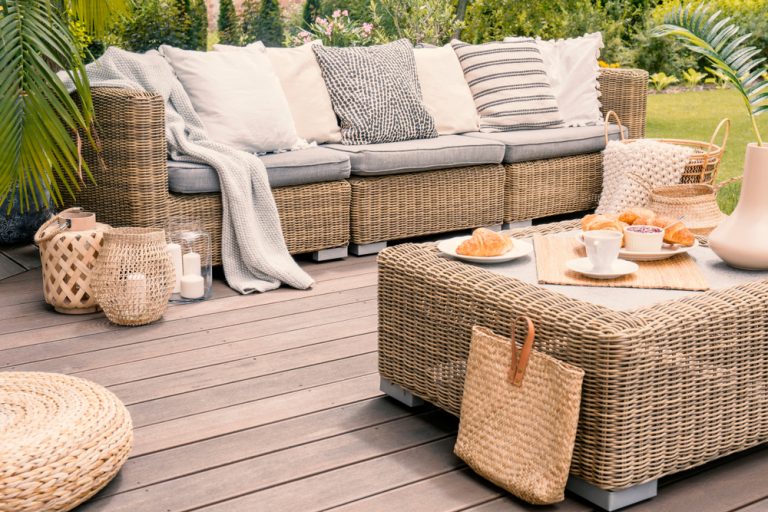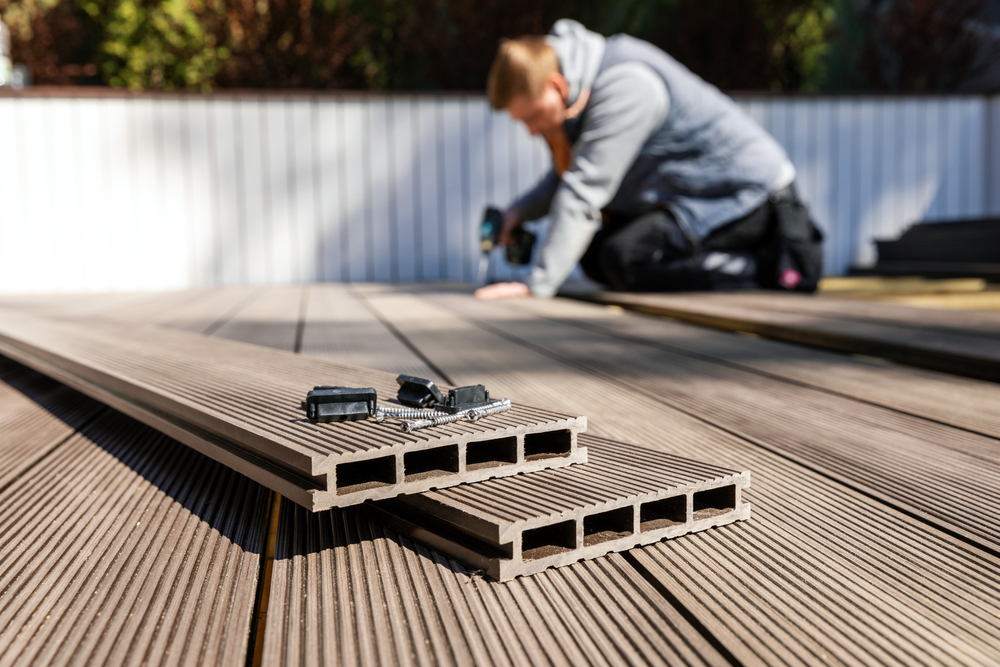The Best Materials to Use When Building a Deck
Posted on: 2021-06-15
Want to spend more time outdoors at your Edmonton home? Maybe it’s time to consider a new deck!
Decks are a great way to enjoy fresh air and sunlight, expand your space and increase the value of your home.
Even though there are many materials available when it comes to building a deck, they are not all created equally. Choosing the best material for your deck depends on your unique needs.
That’s why Parabola Developments want to help you take all factors into consideration when it comes to building a new deck. Then, we’ll show you the best materials you can choose for your new project!
Ready to get started? Keep reading to find out more:
Why Does Decking Material Matter?
When it comes time to have a new deck built for your home, it’s important not to let style win out over substance. Yes, you want a beautiful deck, but aspects such as safety, durability and cost need to be taken into consideration as well.
Before you settle on a material when building your deck, keep the following in mind:
- Durability. You want a deck that will last, right? Some materials are far more durable than others and will better resist fading, rot, splitting and even insects.
- Location. Depending on the climate you live in, you’ll want to consider how certain decking materials will stand up to the elements.
- Maintenance. Unless you want to spend every summer resealing and cleaning your deck, you should opt for a low-maintenance material.
- Replacement. Decks don’t last forever so choosing the right material will make a difference when it comes to replacing your entire deck or even just replacing portions of it.
- Installation. If you’re going to build your deck yourself, you need to consider how easy that job will be. Otherwise, you can always hire the services of a professional contractor.
- Surface temperature. Decks that receive direct sunlight during the day may end up being too hot for your bare feet.
- Cost. When building a new deck, you need to consider not only the cost of the materials but the cost of installation and annual maintenance as well.
- Warranty. If you’re paying for a decking material that is expected to last, you want to make sure the manufacturer will stand behind their product.
Now that you know what to keep in mind when choosing the best material for your deck, here are the options available to you:
The Best Materials to Use When Building a Deck:
Natural Wood
Natural woods such as cedar, redwood or tropical hardwoods are good deck material choices because they are beautiful and durable.
These types of wood will resist rot and insects but will require upkeep such as pressure washing and re-sealing every couple of years.
And natural wood may not be the best choice for your wallet – even those these materials are resilient, they carry a heftier price tag than other materials.
Pressure Treated Lumber
If you’re looking for the look of natural wood, you may consider pressure-treated lumber. This material is typically made of southern pine infused with a chemical that makes it resistant to rot, moisture and insects.
Pressure-treated lumber is a great affordable option and is widely used by homeowners because of its durability and similarity to natural wood.
If you’re thinking about DIYing your deck, pressure-treated lumber is easy to cut and fasten with nails or screws.
Composite
For those who are environmentally conscious, composite decking is made from a blend of recycled plastics (such as polyethylene, polypropylene or PVC) mixed with wood fibers.
Composite decking is a highly durable material that is resistant to warping, rotting and insect infestations.
Available in a wide range of colors and styles, composite materials look like natural wood but require no sealing, sanding or staining (unless you want to change the color down the road).
Keep in mind, however, that darker colors can get very hot in direct sunlight and mold and mildew can grow in shaded or damp areas. Also, the surface of composite decking can get quite slippery when it is wet.
Plastic
PVC (polyvinyl chloride) is a popular deck material because it is durable and easy to maintain. The plastic will not warp, crack or split over time and is resistant to moisture, rot, decay and insects.
Cleaning only requires that you regularly rinse the deck with a garden hose or give it a quick scrub with a mop.
Just like composite, however, the surface can get quite hot in the summer and is susceptible to mold and mildew in the shade.
Also, despite the range of colors available for plastic decking, darker colors will fade over time and lighter colors may develop a chalky coating.
Aluminum
Aluminum is a long-lasting and low-maintenance choice for your deck.
Aluminum decking typically features a baked-on, powder-coated or anodized finish that makes it highly resilient to harsh weather. It also stands up against mold, mildew, staining, rust and rot and will not crack or peel over time.
Unlike plastic decking materials that can become slippery when wet, aluminum decking is designed with a non-skid textured surface that prevents slips and falls – making it the perfect choice to use around a swimming pool.
Despite the fact that this type of deck is made of metal, the surface stays surprisingly cool during hot summer days.
Like natural wood decking, aluminum is not a cheap option. However, what you save on maintenance will more than make up for the cost.
Your New Deck Awaits!
While decks make for a great DIY project that you don’t necessarily have to hire a pro for, having the right tools and know-how can certainly help!
Our expert contractors at Parabola Developments have the knowledge, equipment and patience to build the deck of your dreams. We are a Home Depot Certified Deck and Fence Installer, so we can ensure that your deck is built safely, properly and within code.
Why not sit back and let the pros handle the hard work?
If you’re ready to get started on your new deck, don’t hesitate to get in touch with us today!




